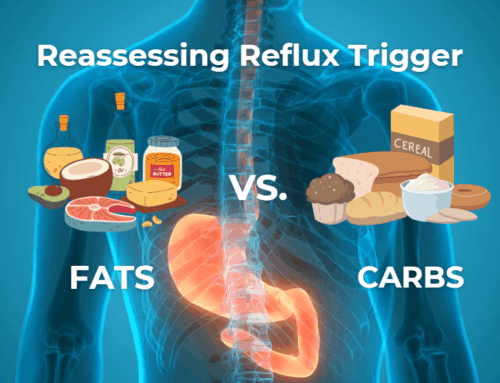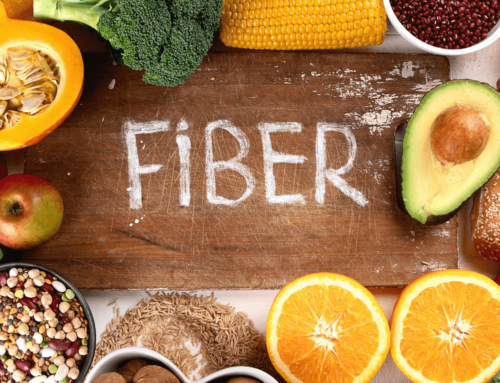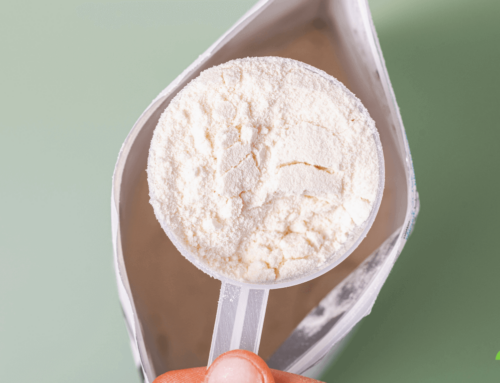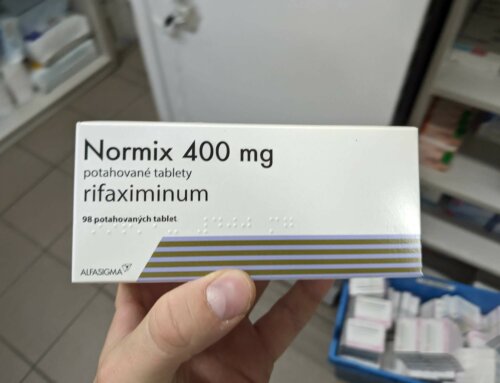A recent large study to assess the associations of dietary fiber and liquid intake to constipation concluded: “The findings support clinical recommendations to treat constipation with increased liquid, but not fiber or exercise.” To read the study, click here.
This conclusion is no surprise based on the The Dark Side of Fiber blog series on this site and these two excerpts from the new Fast Tract Digestion IBS book:
“Constipation can be caused by a variety of factors including insufficient fluid intake, excessive use of laxatives, antacids, or pain medicine such as Tylenol 1, 2, 3 and 4, which contain codeine. Health conditions including Parkinson’s disease, multiple sclerosis, or colon cancer can also cause constipation. Chronic constipation can lead to the diagnosis of IBS-C. While no specific cause has been identified for IBS-C, researchers have discovered that IBS-C is often accompanied by the presence of methane-producing Archaea microbes in the gut. This is an important clue, which we’ll follow up later on in the book.
The first thing you should try for constipation is increasing your water intake. Also evaluate the medicines you are taking to see if constipation is listed as a potential side effect. People who find that these basic steps don’t help their constipation often reach for a laxative. Laxatives can include both foods (like prunes) and drugs that loosen stools allowing for easier passage through the intestine. Laxatives include both oral medications and suppositories.”
Note: The book lists side effects of a variety of laxatives and evaluates the efficacy claims. Also, prunes should not be used due to their very high fermentation potential that can drive new symptoms.
Fiber Laxatives
Bulk-forming laxatives, including high-fiber foods and fiber supplements such as psyllium, methylcellulose, and polycarbophil, are often recommended for people suffering from chronic constipation. The goal is to accelerate the movement of food through your digestive tract. There is considerable doubt as to the effectiveness of this approach. One clinical study looked at the use of bran fiber to reduce constipation. Twenty grams of bran per day did not improve constipation symptoms when compared to a placebo.[i] A systemic review of the effectiveness of different fiber types in treating constipation in IBS patients found only marginal benefits. In some cases, fiber actually worsened IBS symptoms.[ii] Another study found that treating 275 IBS patients with psyllium or bran fiber for three months did not improve their quality of life, though psyllium, the soluble fiber, did offer some improvement.[iii] The group that added bran to their diet experienced a high dropout rate because the participants’ IBS symptoms kept getting worse.”
And, from Fast Tract Digestion IBS Chapter 8
“If you suffer from mild constipation, you should follow the Fast Tract Diet, drink plenty of water (at least 6 glasses per day), and eat extra green vegetables (also make sure you have adequate fat in your diet). For more severe constipation, stool softeners, laxatives, or enemas may also help. These medicines should only be used occasionally, as overuse causes its own problems. Fiber supplements have also been used for constipation, but I would urge significant caution with these as they sometimes make the problem worse. If severe constipation persists for several days, schedule a doctor’s visit. (Refer to Chapter 1 for a review of medications that can help constipation.)”
One more idea is taking supplemental magnesium citrate as a large study has linked low magnesium levels to constipation. One other supplement to try is Iberogast, an herbal extract that improves motility.
[i] Badiali D, Corazziari E, Habib FI, Tomei E, Bausano G, Magrini P, Anzini F, Torsoli A. Effect of wheat bran in treatment of chronic nonorganic constipation. A double-blind controlled trial. Dig Dis Sci. 1995 Feb;40(2):349-56.
[ii] Bijkerk CJ, Muris JW, Knottnerus JA, Hoes AW, de Wit NJ. Systematic review: the role of different types of fibre in the treatment of irritable bowel syndrome. Aliment Pharmacol Ther. 2004 Feb 1;19(3):245-51.
[iii] Bijkerk CJ, de Wit NJ, Muris JW, Whorwell PJ, Knottnerus JA, Hoes AW. Soluble or insoluble fibre in irritable bowel syndrome in primary care? Randomised placebo controlled trial. BMJ. 2009 Aug 27;339:b3154.







Hi,
Does it matter wether methane is located in the small intestine or in the colon to lead to constipation? Because I have done a lactulose test which measured H2 and CH4. Methane did rise in the end a bit (when I started noticing some bubbling), but also had a relative high starting value. The doctor said no SIBO but does the test say anything else regarding methane?
I posted a scan of the test result here if you might have a look: https://dl.dropboxusercontent.com/u/15813135/lactulose.jpg
Thanks and all the best
Chris
Hi Chris,
I looked at your result. I am not sure how your doctor is reading this but it appears to be a positive methane SIBO test to me. (Wikipedia – 20 ppm of hydrogen and/or methane within the first two hours (indicates bacteria in the small intestine)). If you add your H2 and CH4 values together, you are over 20, and even methane alone is greater than 20 at the end of the two hour period. Also, two molecules of hydrogen are needed to produce one molecule of methane, so you would think that the methane value would count as two hydrogens.
Hey Norm,
I followed your diet for two weeks but constipation didn’t improve. How long does it usually take to see an improvement if being being methane positive?
Also do you know if it is common to have elevated sIgA with SIBO? Mine is elevated and I think I have irritated mucosae throughout the body. When I eat fat or sour products not only my gut burns, but also my nose mucosae and eyes start to hurt. Carbohydrates are relatively okay to eat (except some gas and seborric eczema explodes). Seems to be alle messed up.
Hi Chris,
If you have constipation and are methane positive, you have a specific type of microorganisms (likely M. Smithii, https://en.wikipedia.org/wiki/Methanobrevibacter_smithii) that consumes hydrogen that other gut microbes produce in response to carbs. That’s why it’s important to limit the difficult-to-digest carbs that drive hydrogen production. I am not surprised to see increased IgA if you are SIBO-positive. The main focus needs to be getting the SIBO and excess hydrogen under control. Given that you have a few things going on here, it might be useful to have a more in-depth discussion of your issues and diet. We have a consultation/coaching program if you are interested. You can find it on this site. My first questions would be around your observation that fat is causing you some symptoms. Fats are very poor fuel sources for gut bacteria, so they not an issue for most people. I am assuming you have not had gallbladder surgery.
Hi Norm,
Your book and blog gave me a lot of food for thought.
About a year ago after food poisoning, I had developed constant burping (every ten-to twenty minutes), AND stomach bloating after eating sugary fruits AND constipation. The fact that I burp through out the day IRRESPECTIVE of the foods I eat, made me think that this is not SIBO but rather something else (like bile coming into reaction with acid, etc)
However, after reading your book and blog, I am not entirely so sure. I am considering to test the FP diet for several months, but still very hesitant. The reason is above mentioned constipation. In fact right now, gut fermentation actually saves me from constipation (could it be a compensatory mechanism developed by the body?) I am being constipation every day IF I do not eat dates, for example. Only after eating dates (or a lot of fruits) I got to the toilet (i get gassy and bloated, and then diarrhea) I tried to stick to the veggies diet avoiding prunes, dates, fiber, and other FP foods for sometime before, but was constipated and felt horrible. Tried it several times. What can you suggest in this case? As you see, sticking to low FP foods is not quite easy in my case.
Is there a solution? Would you say the following is common in your practice?
Thank you,
Dmitry
Hi Dmitry,
Some suggest that fermentable carbs that produce gas in the colon can help with constipation because the gas and gas pressure can actually help the movement of stools. But when fermentation begins occurring at a high level in the small intestine the same type of gas pressure can result in excessive belching, acid reflux and IBS symptoms.
Some people, on the other hand, harbor archaea microbes such as M. smithi that produce methane from the hydrogen gas other gut bacteria make. This methane has been linked to constipation. If you are methane negative, some level of fermentation might be helpful for your constipation. If positive the fermentation could make the problem worse. You might need to play around with the diet with these things in mind.
One thing that could help (less belching, more support for constipation) might be to focus on the more slowly fermentable carbs such as cellulose (more green plants).
As for burping all day, it takes very few malabsorbed carbs to make enough gas to cause burping.
I would be happy to work with you on your issue through our counseling program if needed.
Hi Norm,
Many thanks for your reply. That is what I have been doing so far – seems that there is a slight improvement. Will tell you about the results a bit later down the line.
I am aware that certain probiotics lead to an alkaline environment in the intestine, and some lead to the acididc one. Which probitiocs tend to lead to the acidic environment? Those will be the ones that tend to help with constipation. Now I am not aware and just experimenting with different types. Would be good to have a approach.
Also I drink fresh goats milk streight from the goat to populate wtih good bacteria.
Kind regards,
Vadim
The acids from probiotics are not the problem. I would be more focused on which probiotics produce gas. Most lactic acid bacteria and bifidobacteria are what are called “homolactic fermenters.” That means they don’t make gas from fermenting carbs – only lactic acid (gut healthy). Some of the others strains in probiotics are “heterolactic” meaning they make gas from carbs (bad for GERD). So keep it simple, perhaps a probiotic containing only Lactobacillus and Bifidobacteria. Or try the diet with no probiotic.
On the raw goat milk, I agree you will get some healthy gut bacteria from the milk, some lactase enzyme and some lactic acid, but use caution if you are lactose intolerant as you will also get a hefty dose of lactose. The bacterial lactase in the milk will help but may not break down all of the lactose present. I would recommend getting to a baseline on the Fast Tract Diet (no symptoms), then experimenting with raw milk and supplements in a controlled fashion.
Hi Norm,
I have suspected that I have SIBO for almost a year now, and I am finding your site very very helpful.
In your last response, to Vadim, you said that there are heterolactic fermenters, and then you said there is another kind … but then also wrote heterolactic….. I am very interested to clear this up because I have been struggling with probiotics for the whole year. I am finally just trying BIO-K because it only has the lactobacillus, and scd says to avoid bifidus, so I am giving that I go. I have done some major killing in my body (I was diagnosed with severe intestinal candiasis and leaky gut), and I am trying to replensih my good guys.
I live in Canada, and it is very frustrating. I was finally told today that I will have to see a naturopath to get the lactulose breath test. I have already seen 3 doctors about this. I am considering setting up a consultation with you.
Thanks,
Lauren
Hi Lauren,
Thanks for spotting my mistake. I corrected it. Most lactic acid bacteria and bifidobacteria are “homolactic” fermenters producing lactic acid but no gas from carbohydrates (under most conditions). You should be fine with this lactobacillus supplement. Scheduling a consult is no problem. Just drop us a line and we can give you the details.
Thank you so very very much for such a speedy response.
I am devouring your site!
Thank you! Your book, Fast Track Digestion Heartburn has alleviated my daily suffering from gassy reflux and chest pressure. I am grateful! However, I am now dealing with constipation for the first time in my adult life (I am 60) and weight loss that I don’t need. I average 30 fermentation points daily. I drink 1 1/2 quarts of water daily. Can I safely up the fermentation points to include more vegetables and fruits? Rice is too much for my blood sugar but I can eat wheat sparingly. Any suggestions would be appreciated. Having to chose between reflux or constipation is not a fun choice! There must be a happy medium. Thank you.
Hi Diane,
One problem down, one to go. I just updated the blog article on this site dealing with constipation. Here’s the link (https://digestivehealthinstitute.org/2013/05/solutions-for-constipation/). I would try not to up the daily FP above 30 until you have tried the other solutions, as you might indirectly feed methane-producing bacteria that are linked to constipation.
i have cronic constapation diabetic kidney promes arthritsis psyoratic arthritis; neuro problems cronic constpation hope that one day i will not look pregent one day skinny next,
Hi Helene, Thanks for posting and nice to have you here on the site. Do you have some suggestions that help with your own constipation? What type of diet are you on? I will start a new topic (constipation) on our new forum as many other people are also looking advice on this issue.
HI I am on dr. Bernstein diabetic diet I am allergic to vinegar and sulfites, Have many illness had military accident approx.. 500 lbs. fall on me. I am a diabetic from bio-chemical exposure. I have psoriasis arthritis. I balance problem. constipation. I take humara; sulfasalazine; amlodipine, water pill vitamin magnesium; aspirin; had kidney failure; zertek.
Hi Wvets, I feel for you. Constipation is bad enough if you’re otherwise healthy, but can be very challenging if you have other health issues. Dr. Bernstein’s diet is obviously a great choice for diabetes, but it might need to be altered to address the constipation while controlling blood sugar insults. If you have tried some of the standard remedies without success, you might consider our consultation program.
thanks
Hi Norm,
I’m really hoping you can help me. I have a lot of little things wrong that have really affected my quality of life.
Family History:
Dad- Chron’s Disease
Mom- Fibromyalgia and mental health issues
Brother- ankylosing spondylitis
My Medical History:
Chronic Anal Fissures (5+ years)
Hard Dry stool (most of the time) sometimes diarrhea
Connective tissue issues
Vulvar Vestibulitis caused by oxalate sensitivity
Lots of flatulence
Ferritin (iron stores) levels of 10
Neutropenia at 0.7 (stable for 10 years) I make enough white blood cells in my bone marrow but they get destroyed by my body when they are released into the bloodstream (autoimmune)
My Challenges:
I can’t tolerate stool softener or many supplements as they make me wake up at 3:30 feeling very hungover and parched. Basically very dehydrated with a horrible headache. I was taking calcium citrate for years at about 1000 mg combined with 600mg magnesium citrate. This was fine for five years. Then five years ago my iron got really low and when I tried to supplement with iron I got horribly constipated and got the fissures. Now I can’t tolerate many supplements. Sometimes even probiotics make me feel this way- chocolate definitely does.
So here I am, on a low oxalate diet with never ending fissures and pain. Any suggestions? Help?!!!
Thanks,
Aleisha
PS- I’m allergic to dairy- not the lactose, but the milk protein.
Hi Aleisha, I can see how your symptoms could leave you a little frustrated. Sorry that we can’t provide individual advice outside of the consultation program. At least you have found some connections with diet and supplements. Wishing you the best.
Is it ok to use Citrucel as long as it’s sugar free? It’s supposed to be non- fermentable. Thanks!
Hi Akavery, You could try it. The sugar free version is better for sure. Some people ferment this fiber, others don’t. It’s better than the fibers in legumes. But fiber in general is often part of the problem, not the solution – as this study results reflect:
https://www.ncbi.nlm.nih.gov/pmc/articles/PMC3435786/
Thanks Norm! I actually tried it and the second time (yesterday) I ended up with horrible cramping and no results otherwise so I’m done with the Citrucel!
I also read the study done that proved that constipation is supposed to actually be improved by a low-fiber diet. However, I’m just wondering why I’ve have gotten more constipation since starting the fast tract diet. To me it kinda makes sense because of the added dairy. I’m just trying to understand it all because when I used to take oatbran in my oatmeal every day I seemed to be fine. Now I’m having hard stools, straining and going less. What solution have you found for constipation? Being on the diet yourself and being its founder, what have you found that works? Eating more greens? Tons of water? Just wondering because I’ve relied on whole grains, fruit and veggies for the longest time and used to be fine in the constipation realm (minus the bloating of course!) Thanks so much for your insight!
Sorry to hear it Akavery. You might get a methane breath test if you haven’t already. As for what I eat: I eat low FP but a pretty low carb version. I eat green veggies (my favorites are broccoli, Brussel’s sprouts and herbs from our garden) a couple of times a day and at least one salad. I have no aversion to fats so use olive oil and butter regularly and eat fatty cuts of meats, cheese and small amounts of light and heavy cream. Constipation not an issue I need to deal with very often.
Dr. Robillard,
I have been suffering from this burning feeling in my stomach for about two years now (IDK if it’s GERD). It all started when I get stressed out – I noticed the burning feeling gets worse. I finally went to the doctor and was prescribed PPIs and made the burning feeling worse (the burning feeling moved from the right side of my stomach to the center/upper part of my stomach)!
I have been following the diet from your table at the end of the book – only sticking to the ones with “low potential” FP and noticed that I became constipated.
The burning feeling goes away when I’m walking around, but when I sit down for about more than about 30min., the burning feeling kicks in (and unfortunately for me I work in front of the computer the whole day).
Thanks
Hi Dpat, Given that you are still having some of your original symptoms, I recommend doing your best to tighten up the diet, eating only the lowest FP foods, and reviewing the troubleshooting section for die-hard symptoms.
While diet changes can have a variety of short term effects, the Fast Tract Diet Diet is designed to limit bacterial overgrowth and resulting hydrogen gas. Hydrogen gas feeds methane-producing Archeae organisms linked to constipation, so the diet should improve constipation as bacterial overgrowth is reduced.
Of course, many things can effect constipation and overall motility. If you continue to experience symptoms, please consider our consultation program.
Hi Dr. Robillard,
I am wondering if you have an opinion or shareable information regarding the safety or danger of using Polyethylene Glycol 3350 (osmotic laxative). It is the only substance that has helped my chronic C, an over 10 year battle. In addition to taking PG, I do pay close attention to my water intake, diet and address motility issues with MotilPro and exercise. A recent FB post of mine brought about some strong cautioning regarding the dangers of PG, but I have not been able to find anything to corroborate the position. Until I have done due diligence on this subject, I have suspended that post. I am however, journal insecure. Thus I ask for help. What I have found, I have included in a new post on FB in the SIBO group we both belong to.
In advance, thank you for your time.
Hi Myra,
The least invasive laxative in my view is magnesium citrate with PEG in second place. Chronic use of any laxative is not a great idea. But for occasional use, PEG has a pretty good, but not perfect safety record. The biggest issue currently is long term use and especially pediatric use. Here are a couple of good links on the topic:
https://www.webmd.com/children/news/20150106/laxative-ingredient-investigated
https://bit.ly/1JF6pox
Also, my friend Konstantin Monastyrsky is an outspoken critics of PEG. His opinion is also worth a read. https://bit.ly/1AgPgNq
I have had sinus infections since I was a child, along with severe brain fog. Everyone thought I was just slow. bronchial infections 3x’s a year treated with antibiotic, junk food eater, goiter by 16 years of age and @ 36, had thyroidectomy, and went through 4 ROUNDS OF INVITRO without ever conceiving.
At age 53 none of the symptoms dissappeared. Diagnosed with Sito about a year ago.two rounds of rifaxamin and I still have digestive problems of bloating, gassiness, rumbling brain fog and I could go on. I gave up all processed foods five years ago, cooking everything I eat. I have tried the SPC and the low FODMAP diet. I JUST FOUND YOUR BOOK FAST TRACK DIGESTION, ran out to buy some new groceries and through away the old ones. Am on day two. am having difficulty understanding how much of a portion I am able to have at a meal or snack on my own and do you think I will see results at least within a week? I have been so frustrated over constantly trying to find someone to help and then they cannot.
Yes, if you use Senna Leaves too much, they will make your constipation worse. they are meant to be used in the short term. For me, I use the Dr Max Powers 15 Days Cleanse. I DO NOT TAKE IT FOR 15 DAYS!!! I only take two pills the day i have constipation, and maybe the next day. NO MORE. And then I dont take it for a month, as you dont want you body getting used to it. A bottle lasts me about a year, and for the last year I have barely had any problems.